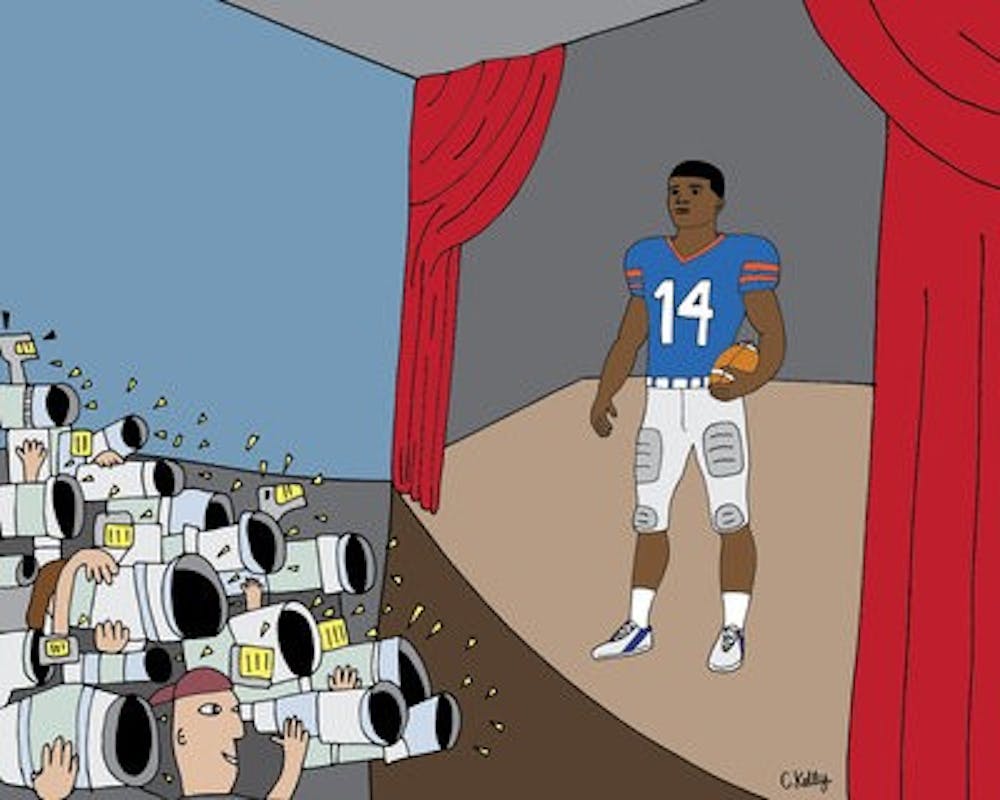In 2009, a photo of Olympic swimmer Michael Phelps smoking a bong caused him to lose a sponsorship from Kellogg's. He was also suspended from USA Swimming for three months.
The year before, he won eight gold medals.
When the photo was released, he was crucified by the media.
All his achievements were completely ignored, and his name was dragged through the mud by every self-righteous pundit in the country.
This past July, Nick Marshall faced a similar scandal.
Marshall was cited for possession of marijuana.
He was fined $1,000, which his mother paid, and was not allowed to start in the season opener against Arkansas.
Much like Phelps, Marshall became the focus of undeserved media outrage.
He was called everything from a drug addict to a thug. His stellar performance as quarterback during the 2013 season was pushed to the side.
There is a problem with these stories, but it has nothing to do with these men getting high.
The problem is how we, as fans and as a society, react whenever people we look up to, such as Phelps and Marshall, get caught smoking marijuana.
While the public opinion of marijuana may be shifting, the old fears and stigmas hold firm when it comes to athletes, especially college football players.
They aren't allowed to make mistakes. We expect them to follow an ill-defined yet strict moral code. Perhaps worst of all, we think we have a say in how they live their lives.
So when one of them does make a mistake, we get offended and think it's our job to chastise and correct them.
It's time to stop punishing college athletes for doing the same thing other college kids, and millions of other people, do every day.
It's time to stop expecting them to be punished by the University as well as the criminal justice system.
Not letting Marshall start was ridiculous.
It served no purpose other than to placate those who chose to be offended by his actions.
Marshall was not on steroids; he didn't commit armed robbery or beat his wife, but many still expected him to punished as if he had done these things.
If Marshall, or any other athlete chooses to smoke, it's none of our business.
If they get caught, their punishment should be the responsibility of the criminal justice system; that's it.
While the state and federal laws making marijuana illegal may not change anytime soon, the way we look at people who do smoke certainly can change.
POLL: What did you think of Nick Marshall's punishment? http://t.co/spCYV9otwR #poll #nickmarshall pic.twitter.com/mESUsng4LT
— The Auburn Plainsman (@TheAUPlainsman) September 12, 2014
Do you like this story? The Plainsman doesn't accept money from tuition or student fees, and we don't charge a subscription fee. But you can donate to support The Plainsman.





